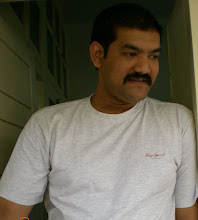Sanatana Dharma, meaning “Eternal or Universal Righteousness” is the original name of what is now popularly called Hinduism. Sanatana Dharma comprises of spiritual laws which govern the human existence. Sanatana Dharma is to human life what natural laws are to the physical phenomena. Just as the phenomena of gravitation existed before it was discovered, the spiritual laws of life are eternal laws which existed before they were discovered by the ancient rishis (sages) for the present age during the Vedic period. Sanatana Dharma declares that something cannot come out of nothing and, therefore, the universe itself is the manifestation of the Divine being. This truth forms the invocation of the Isa Upanishad:
Poornam-adah; poornam-idam
poor-nath; poornam-udachyate
Poor-nasya; poornam-adaya
poornam-eva-va-sishyate
That is full; this is full. The full comes out of the full. Taking the full from the full, the full itself remains.
This verse expresses the mystery of creation. This universe comes forth from the Divine, yet the universe takes nothing from the Divine and adds nothing to it. Divine remains ever the same. Since the universe has come forth from the Divine, all things and beings are sacred and must be treated so in human thought and action. The Divine sleeps in minerals, awakens in plants, walks in animals and thinks in humans.
Sanatana Dharma looks upon a person as a part and parcel of the mighty Whole, but never regards him as “the Measure of all things.” In the West, “person” is a supreme and final value, while Sanatana Dharma regards person as a part of the Whole, having the same vital essence as all other human and sub-human creatures of the universe. This cosmic view of Hinduism transcends the sectarian or group dogmas and paves a way for the coexistence of all creatures under the Vedic principle of Vasudev Kutumbhkam, meaning “The Universe is One Family.” This principle guides the humankind towards universal harmony through acceptance and tolerance.
Sanatana Dharma recognizes that the Ultimate Reality, which is the ground of infinite potentiality and actualization, cannot be limited by any name or concept. The potential for human wholeness (or in other frames of reference, enlightenment, salvation, liberation, transformation, blessedness, nirvana, moksha) is present in every human being. No race or religion is superior and no color or creed is inferior. All humans are spiritually united like the drops of water in an ocean.
Therefore:
- Don't enforce one belief, one way of worship or one code of conduct for all. Do not attempt to destroy different forms of worship, claiming your own way to be the only right one. Such enforcement of uniformity would be un-natural and contrary to the Divine Law. It hinders the progress of a human being in his/her journey to the state of divinity.
- Give importance to sincerity of heart and nobleness of conduct in the field of religion. Do not claim to have obtained from God, exclusive and irrevocable power of attorney to be a dictator and to persecute others on behalf of God, because they do not agree with you.
- Don't claim to have bound the Boundless God. Do not create inter-religious wars and massacres, forcing your claims and dogmas on others.
- Give a person freedom to think, freedom to believe, freedom to disbelieve and freedom to adopt a way of worship, which suits his/her temperament. After all, what is important in worship of God is the sincerity of heart, not the outer form of worship.
- Don't divide the human race into conflicting armies and camps of Holy believers and Unholy Others.
